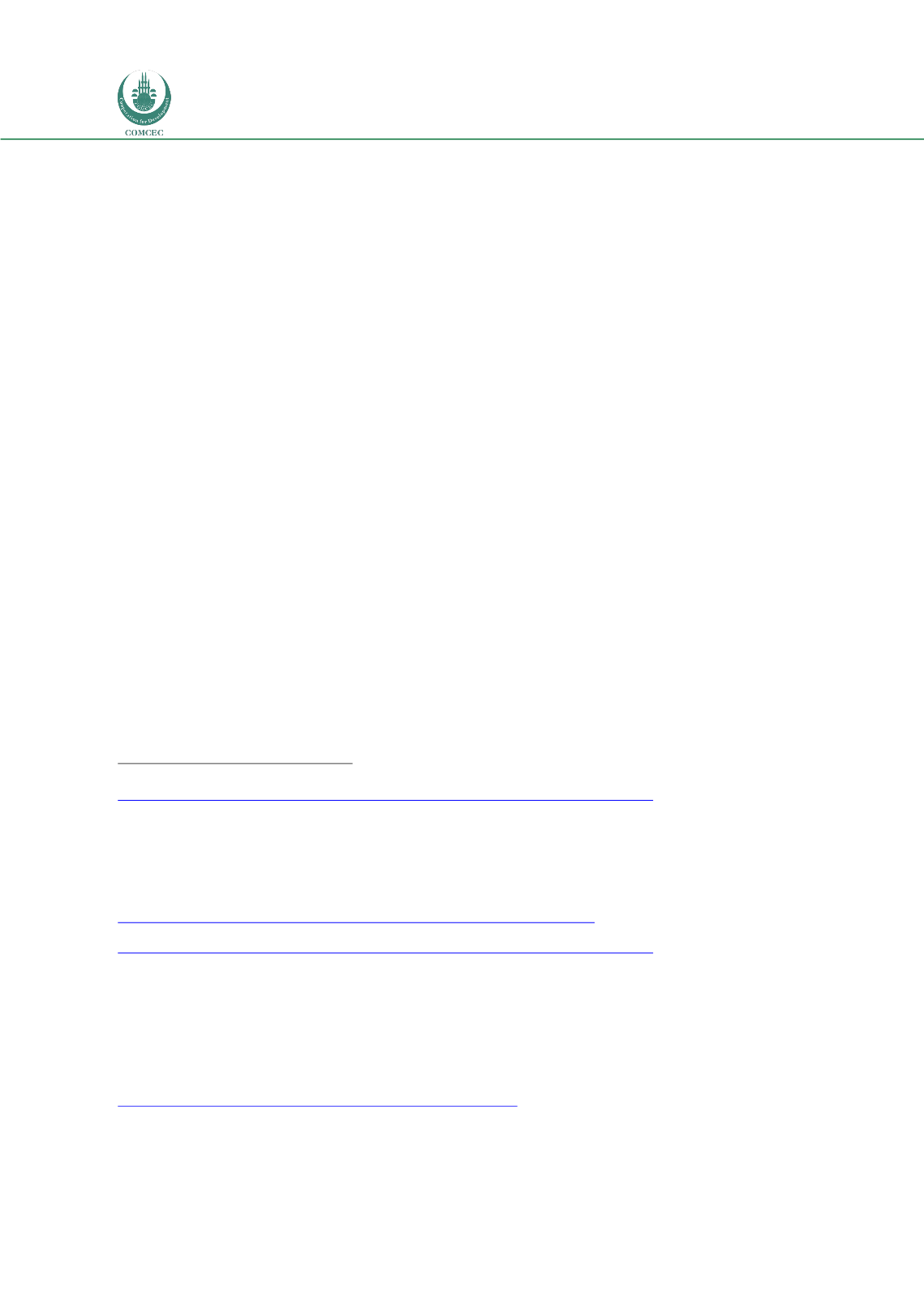

Forced Migration in the OIC Member Countries:
Policy Framework Adopted by Host Countries
40
UNHCR.
117
Even in countries where the authorities have a national asylum system in place
though, UNHCR often plays a supporting role in providing assistance for refugees. Such is the
case of Cameroon, where UNHCR helps document refugees, effectively manages the RSD
process, and provides aid through targeted intervention and livelihoods programming.
118
UNHCR has also taken responsibility for issuing refugee cards in Guinea-Bissau, where the
government asylum system has been inactive in recent years.
119
The ECOWAS approach: Humanitarian protection through free movement
The major platform for regional cooperation on migration and refugee issues in West Africa is
the Economic Community of West African States (ECOWAS). ECOWAS is an intergovernmental
organization of 15 countries dedicated to promoting greater regional economic integration
and political cooperation.
120
While ECOWAS has not drafted legislation specifically addressing
refugees and forced migrants, the community’s Free Movement Protocol has been utilized to
help give refugees and asylum seekers access to rights, protection, and durable solutions while
maintaining their original citizenship.
121
The Free Movement Protocol grants migrants the
ability to move between ECOWAS states without visas and the right to residence and
establishment—allowing forced migrants to swiftly flee persecution or warfare while
maintaining a regular status.
122
However, full implementation of the Free Movement Protocol
remains hindered by barriers such as the solicitation of bribes and arbitrary detention at
difficult border crossings, intolerant attitudes towards foreigners and migrants, and a lack of
knowledge of such policies on the ground.
123
Additionally, the lack of regularization channels
for unsuccessful asylum seekers who do not wish to return home continue to hamper the
effectiveness of the ECOWAS mobility mechanisms as a protection tool in practice.
124
ECOWAS has also tried to bring member states together to develop a regional response to
forced and nonforced migration through the Migration Dialogue for West Africa (MIDWA) and
the Common Approach on Migration. MIDWA, inaugurated in 2000, is a regional consultative
process (RCP) that seeks to address migration and regional integration issues through
117
U.S. Department of State, “Country Reports on Human Rights Practices for 2015: Togo,” accessed June 1, 2016,
http://www.state.gov/j/drl/rls/hrrpt/humanrightsreport/index.htm?year=2015&dlid=252739 .118
In 2011, Cameroon passed the Decree on the Organization and Functioning of Refugee Status Management Organs, which
sought to establish the institutional organs to conduct the RSD procedure. As of the end of 2015 however, UNHCR still had
not fully transferred management of the RSD procedure to this body. This left UNHCR as the primary processing agency for
the 327,000 refugees currently residing in Cameroon – primarily from the Central African Republic and Nigeria. Matsinkou
Tenefosso Sydoine Claire and Tinteu Yves Pauli, “Fairness in refugee status determination upon the transfer of competence
to the national authorities of Cameroon,”
International Journal of Innovation and Scientific Research
13 (2), 2013, 6336-643;
UNHCR, “Cameroon,” accessed August 30, 2016,
http://reporting.unhcr.org/node/2525#_ga=1.179800548.1564101367.1465226960 ;U.S. Department of State, “Country
Reports on Human Rights Practices for 2015: Cameroon,” accessed August 30, 2016,
http://www.state.gov/j/drl/rls/hrrpt/humanrightsreport/index.htm?year=2015&dlid=252661 .119
U.S. Department of State, “Country Reports on Human Rights Practices for 2015: Guinea-Bissau,” accessed June 1, 2016,
http://www.state.gov/j/drl/rls/hrrpt/humanrightsreport/index.htm?year=2015&dlid=252691.120
ECOWAS includes the OIC member states of Benin, Burkina Faso, Côte d’Ivoire, The Gambia, Guinea, Guinea-Bissau, Mali,
Niger, Nigeria, Senegal, Sierra Leone and Togo, along with Cape Verde, Ghana, and Liberia. Mauritania withdrew from
ECOWAS in 2000.
121
Solomon T. Ebobrah, “Sub-regional frameworks for the Protection of Asylum Seekers and refugees in Africa: Bringing
Relief Closer to Trouble Zones.” In
Regional Approaches to the Protection of Asylum Seekers
, ed. Ademola Abass and
Francesca Ippolito, (Surrey, United Kingdom: Ashgate Publishing, 2014), 82; IOM and UNHCR,
Protecting Refugees and Other
Persons
on
the
Move
in
the
ECOWAS
Space
(Dakar:
IOM
and
UNHCR,
2011),
http://publications.iom.int/system/files/pdf/iom-unhcrpublication.pdf .122
Only identity papers are necessary to move amongst the ECOWAS states.
123
Charrière and Frésia,
West Africa as a Migration and Protection area
, 3
124
Charrière and Frésia,
West Africa as a Migration and Protection area
, 3
















